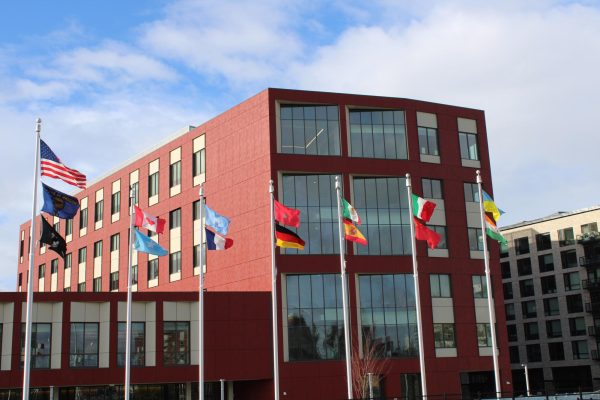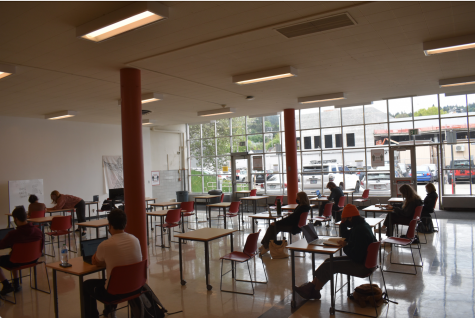Opinion: COVID’s silver lining
Many positive outcomes have occurred due to the global shutdowns caused by COVID-19. Amidst all the bad news that is surrounding our current situation with COVID-19, it seems difficult to find a silver lining. Although hope seems lost, here is some good news about what COVID-19 has contributed to recently in a positive way.
Due to travel bans worldwide and the majority of people self quarantining in their homes, transportation emissions have decreased dramatically. According to the Intergovernmental Panel on Climate Change (IPCC), transportation contributes to 23% of global carbon emissions while driving contributes to 72% of the transport sector’s greenhouse gas emissions and aviation contributes to 11% of it. Hopefully, these temporary drops will encourage permanent change.
In major hubs around the world, CO2 emission levels have also dropped. There has been a 5-10% drop in CO2 emissions and a nearly 50% drop in carbon monoxide in New York, according to the BBC. China has experienced a 25% drop in carbon emissions at the beginning of 2020 due to strict stay-at-home orders according to CarbonBrief.
Due to a reduction of air pollution in India, the Himalayan Mountain range is visible from 100 miles away for the first time in decades, according to CNN. In addition, India’s Central Pollution Control Board found that there has been a 44% reduction of PM10 air pollution in Dehli during the first few days of its lockdown.
Whether it be in Copenhagen, Denmark, or Milan, Italy, citizens have been gathering on their balconies and at their windows to sing and dance together. Neighbors have been partaking in these sing-and-dance-alongs in an attempt to lift spirits and show solidarity through these troubling times.
Historic landmarks around the world are being used to show solidarity and support for other countries fighting COVID-19. In Rio de Janeiro, Brazil, the famous Christ the Redeemer statue was illuminated with various flags of other countries battling COVID-19. In Zermatt, Switzerland, the Matterhorn mountain has been illuminated with different flags from countries that are currently hit hardest by the coronavirus.
Although these changes are steps in the right direction when it comes to combating climate change, whether or not these changes will survive after restrictions are lifted is still unknown. During the 2008 economic crisis, positive environmental changes occurred; however, after the nation recovered, environmental issues once again spiked.
Because we have seen it before, another spike is very probable. Many people are waiting in anticipation for the world to reopen, and once things return to the way they were before, emissions and pollution will continue. Although we should all take this as a learning situation and try to permanently adopt these new habits, whether that be reducing non-essential travel, less time spent driving, and more, history tends to repeat itself.















